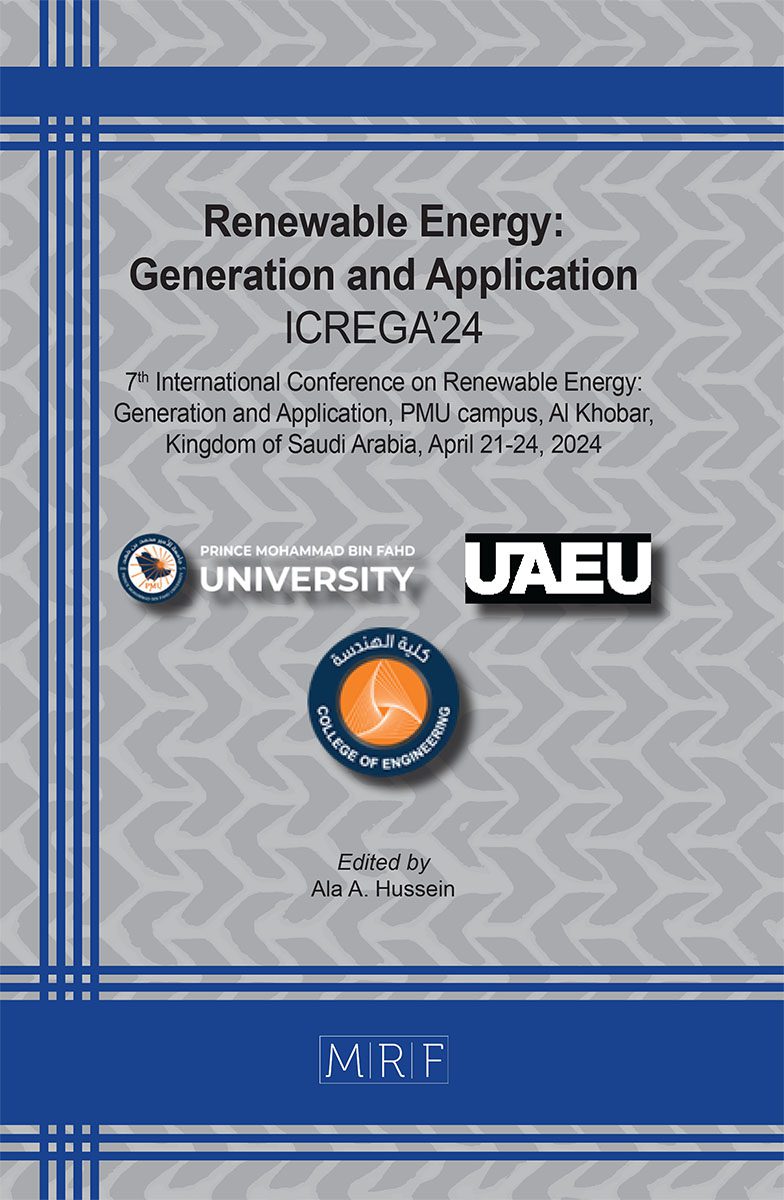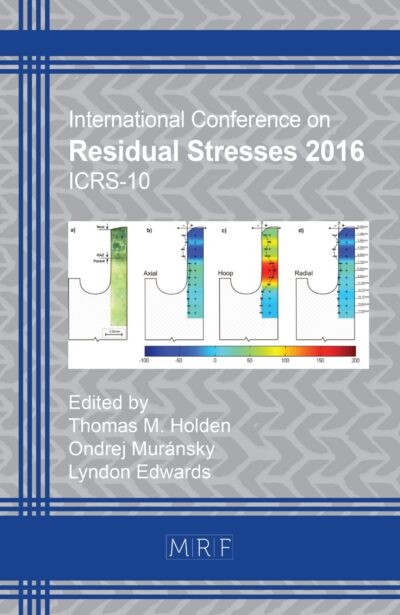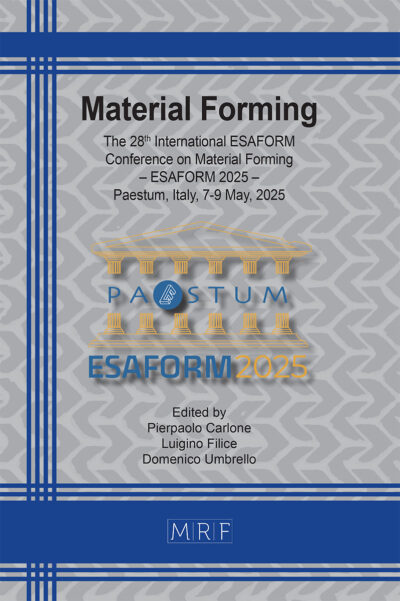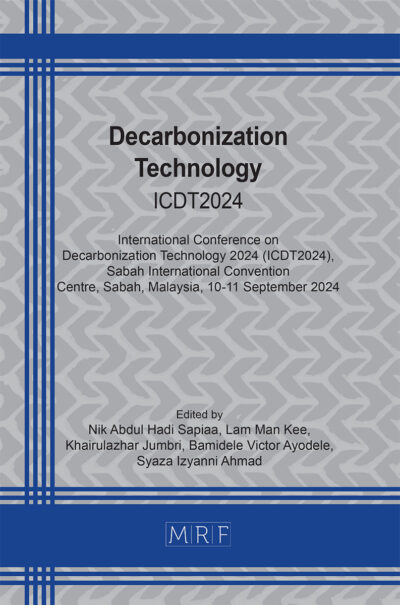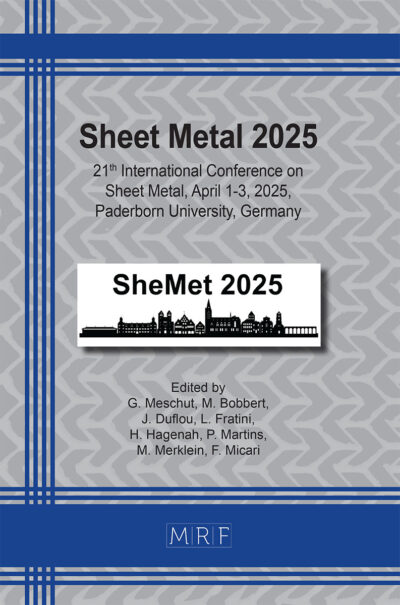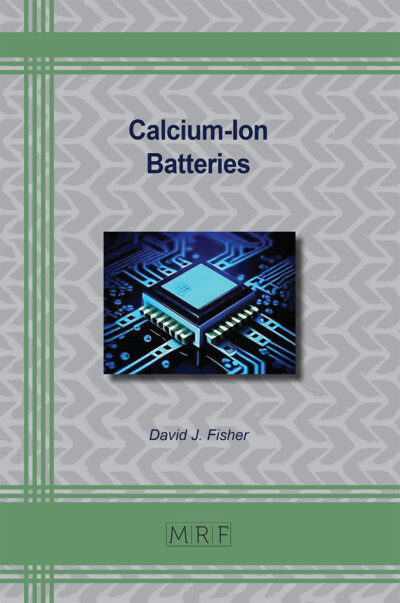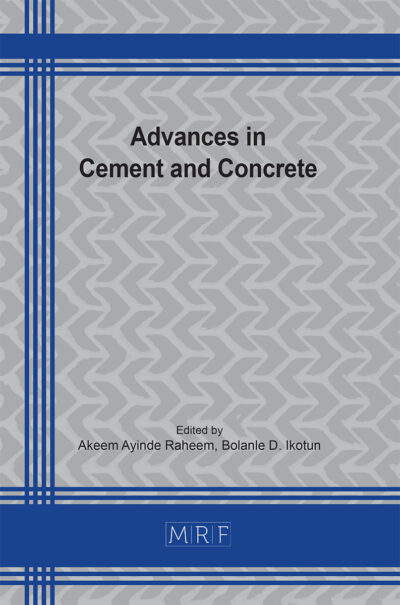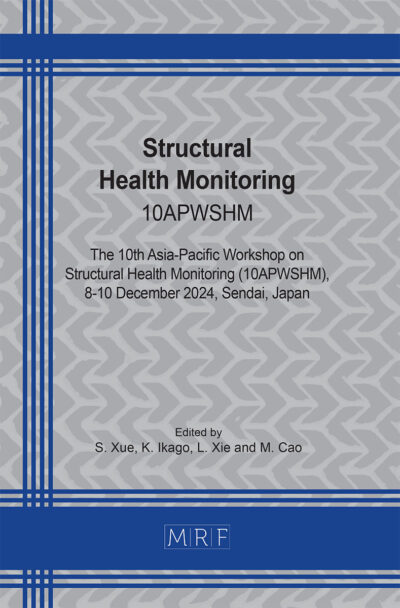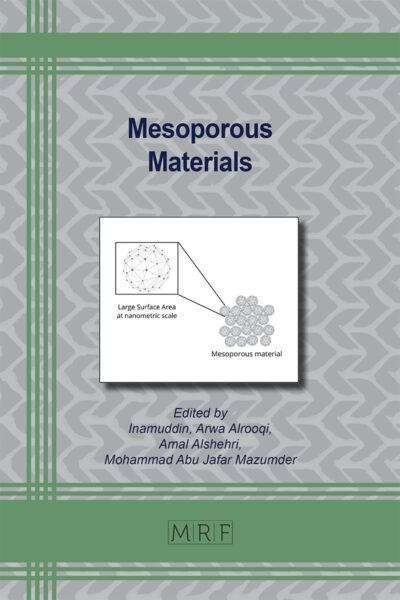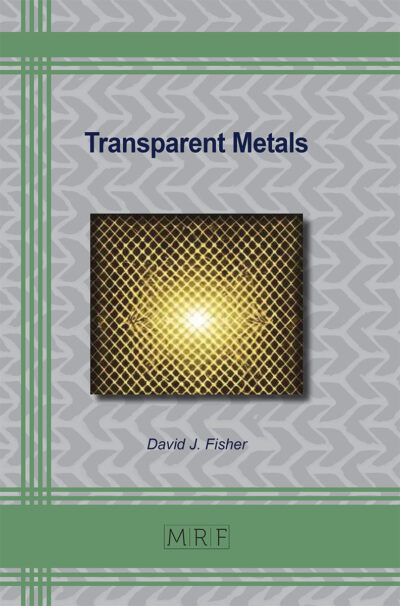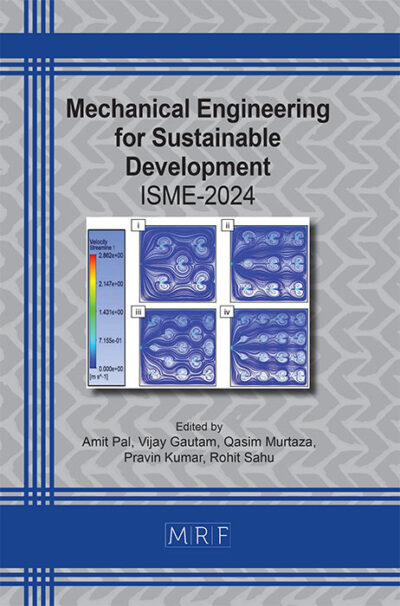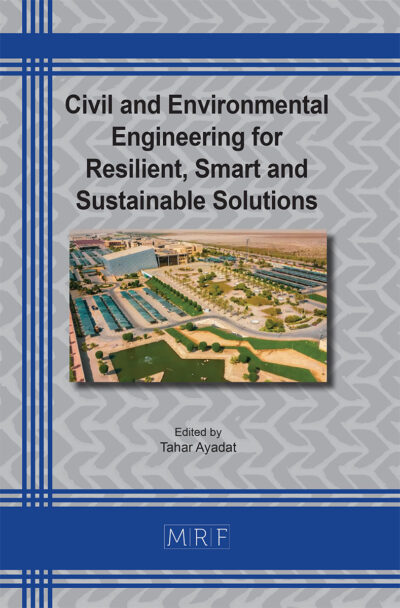–
Adaptive cooling framework for Photovoltaic systems: A seasonal investigation under the terrestrial conditions of Sharjah, UAE
Mena Maurice FARAG, Abdul-Kadir HAMID, Mousa HUSSEIN
download PDFAbstract. The increment of PV operating temperature has a significant impact on the overall efficiency, longevity, and degradation of PV systems. In this notion, researchers have sought to investigate different cooling methodologies to minimize the impact of abrupt operating temperatures. However, most investigations discuss the impact of the working base fluid in small periods without proposing methods for temperature regulation based on defined thresholds. In this study, an adaptive cooling framework is proposed through thermal and electrical modeling to examine the cooling effect on a 2.88 kW grid-connected PV system installed in Sharjah, UAE. An operating temperature threshold of 55°C is considered based on the annual average operating temperature, to facilitate adaptive cooling. The framework is modeled based on heat transfer thermodynamic laws and implemented on MATLAB using experimentally driven measurements collected from the above-mentioned system for December, March, June, and September. As a result, the proposed framework has presented notable merits in terms of electrical and thermal characteristics across the four different seasons. The highest heat extraction was observed in September, where a reduction of 25.36% was observed in PV operating temperature, showing the effectiveness of temperature regulation in harsh weather conditions. As a result, the electrical characteristics have improved significantly leading to an 8.79%, 6.39%, and 6.58% enhancement in maximum power output, maximum voltage, and electrical efficiency, respectively.
Keywords
Adaptive Cooling, Photovoltaic Systems, Solar Energy, Temperature Regulation, Photovoltaic-Thermal Applications
Published online 7/15/2024, 9 pages
Copyright © 2024 by the author(s)
Published under license by Materials Research Forum LLC., Millersville PA, USA
Citation: Mena Maurice FARAG, Abdul-Kadir HAMID, Mousa HUSSEIN, Adaptive cooling framework for Photovoltaic systems: A seasonal investigation under the terrestrial conditions of Sharjah, UAE, Materials Research Proceedings, Vol. 43, pp 73-81, 2024
DOI: https://doi.org/10.21741/9781644903216-10
The article was published as article 10 of the book Renewable Energy: Generation and Application
![]() Content from this work may be used under the terms of the Creative Commons Attribution 3.0 license. Any further distribution of this work must maintain attribution to the author(s) and the title of the work, journal citation and DOI.
Content from this work may be used under the terms of the Creative Commons Attribution 3.0 license. Any further distribution of this work must maintain attribution to the author(s) and the title of the work, journal citation and DOI.
References
[1] N. Novas, R.M. Garcia, J.M. Camacho, A. Alcayde, Advances in Solar Energy towards Efficient and Sustainable Energy, Sustainability. 13 (2021) 6295. https://doi.org/10.3390/su13116295
[2] S. Paraschiv, L.S. Paraschiv, Trends of carbon dioxide (CO2) emissions from fossil fuels combustion (coal, gas and oil) in the EU member states from 1960 to 2018, Energy Reports. 6 (2020) 237–242. https://doi.org/10.1016/j.egyr.2020.11.116
[3] M.M. Farag, R.A. Alhamad, A.B. Nassif, Metaheuristic Algorithms in Optimal Power Flow Analysis: A Qualitative Systematic Review, Int. J. Artif. Intell. Tools. 32 (2023). https://doi.org/10.1142/S021821302350032X
[4] E. Kabir, P. Kumar, S. Kumar, A.A. Adelodun, K.-H. Kim, Solar energy: Potential and future prospects, Renew. Sustain. Energy Rev. 82 (2018) 894–900. https://doi.org/10.1016/j.rser.2017.09.094
[5] M.M. Farag, N. Patel, A.-K. Hamid, A.A. Adam, R.C. Bansal, M. Bettayeb, A. Mehiri, An Optimized Fractional Nonlinear Synergic Controller for Maximum Power Point Tracking of Photovoltaic Array Under Abrupt Irradiance Change, IEEE J. Photovoltaics. 13 (2023) 305–314. https://doi.org/10.1109/JPHOTOV.2023.3236808
[6] M.M. Farag, F. Faraz Ahmad, A.K. Hamid, C. Ghenai, M. AlMallahi, M. Elgendi, Impact of Colored Filters on PV Modules Performance: An Experimental Investigation on Electrical and Spectral Characteristics, in: 50th Int. Conf. Comput. Ind. Eng., 2023: pp. 1692–1704.
[7] T. Salameh, A.K. Hamid, M.M. Farag, E.M. Abo-Zahhad, Energy and exergy assessment for a University of Sharjah’s PV grid-connected system based on experimental for harsh terrestrial conditions, Energy Reports. 9 (2023) 345–353. https://doi.org/10.1016/j.egyr.2022.12.117
[8] N.K. Almarzooqi, F.F. Ahmad, A.K. Hamid, C. Ghenai, M.M. Farag, T. Salameh, Experimental investigation of the effect of optical filters on the performance of the solar photovoltaic system, Energy Reports. 9 (2023) 336–344. https://doi.org/10.1016/j.egyr.2022.12.119
[9] T. Salameh, A.K. Hamid, M.M. Farag, E.M. Abo-Zahhad, Experimental and numerical simulation of a 2.88 kW PV grid-connected system under the terrestrial conditions of Sharjah city, Energy Reports. 9 (2023) 320–327. https://doi.org/10.1016/j.egyr.2022.12.115
[10] H.M.S. Bahaidarah, A.A.B. Baloch, P. Gandhidasan, Uniform cooling of photovoltaic panels: A review, Renew. Sustain. Energy Rev. 57 (2016) 1520–1544. https://doi.org/10.1016/j.rser.2015.12.064
[11] S. Chander, A. Purohit, A. Sharma, Arvind, S.P. Nehra, M.S. Dhaka, A study on photovoltaic parameters of mono-crystalline silicon solar cell with cell temperature, Energy Reports. 1 (2015) 104–109. https://doi.org/10.1016/j.egyr.2015.03.004
[12] M. Al-Maghalseh, Experimental study to investigate the effect of dust, wind speed and temperature on the PV module performance, Jordan J. Mech. Ind. Eng. 12 (2018) 123–129.
[13] H. Attia, K. Hossin, Integrated Renewable PV System through Artificial Neural Network Based MPPT and Water Cooling Treatment, in: 2019 Int. Conf. Electr. Comput. Technol. Appl., IEEE, 2019: pp. 1–5. https://doi.org/10.1109/ICECTA48151.2019.8959581
[14] M.M. Farag, F.F. Ahmad, A.K. Hamid, C. Ghenai, M. Bettayeb, M. Alchadirchy, Performance Assessment of a Hybrid PV/T system during Winter Season under Sharjah Climate, in: 2021 Int. Conf. Electr. Comput. Commun. Mechatronics Eng., IEEE, 2021: pp. 1–5. https://doi.org/10.1109/ICECCME52200.2021.9590896
[15] K. Sornek, W. Goryl, R. Figaj, G. Dąbrowska, J. Brezdeń, Development and Tests of the Water Cooling System Dedicated to Photovoltaic Panels, Energies. 15 (2022) 5884. https://doi.org/10.3390/en15165884
[16] M. Al-Odat, Experimental Study of Temperature Influence on the Performance of PV/T Cell under Jordan Climate Conditions, J. Ecol. Eng. 23 (2022) 80–88. https://doi.org/10.12911/22998993/152283
[17] M.M. Farag, A.K. Hamid, Performance assessment of rooftop PV/T systems based on adaptive and smart cooling facility scheme – a case in hot climatic conditions of Sharjah, UAE, in: 3rd Int. Conf. Distrib. Sens. Intell. Syst. (ICDSIS 2022), Institution of Engineering and Technology, 2022: pp. 198–207. https://doi.org/10.1049/icp.2022.2448
[18] H. Attia, K. Hossin, M. Al Hazza, Experimental investigation of photovoltaic systems for performance improvement using water cooling, Clean Energy. 7 (2023) 721–733. https://doi.org/10.1093/ce/zkad034
[19] K. Mostakim, M.R. Akbar, M.A. Islam, M.K. Islam, Integrated photovoltaic-thermal system utilizing front surface water cooling technique: An experimental performance response, Heliyon. 10 (2024) e25300. https://doi.org/10.1016/j.heliyon.2024.e25300
[20] M.M. Farag, R.C. Bansal, Solar energy development in the GCC region – a review on recent progress and opportunities, Int. J. Model. Simul. 43 (2023) 579–599. https://doi.org/10.1080/02286203.2022.2105785
[21] D.L. Evans, L.W. Florschuetz, Terrestrial concentrating photovoltaic power system studies, Sol. Energy. 20 (1978) 37–43. https://doi.org/10.1016/0038-092X(78)90139-1
[22] M.M. Farag, F.F. Ahmad, A.K. Hamid, C. Ghenai, M. Bettayeb, Real-Time Monitoring and Performance Harvesting for Grid-Connected PV System – A Case in Sharjah, in: 2021 14th Int. Conf. Dev. ESystems Eng., IEEE, 2021: pp. 241–245. https://doi.org/10.1109/DeSE54285.2021.9719385
[23] M.M. Farag, A.K. Hamid, Experimental Investigation on the Annual Performance of an Actively Monitored 2.88 kW Grid-Connected PV System in Sharjah, UAE, in: 2023 Adv. Sci. Eng. Technol. Int. Conf., IEEE, 2023: pp. 1–6. https://doi.org/10.1109/ASET56582.2023.10180880

